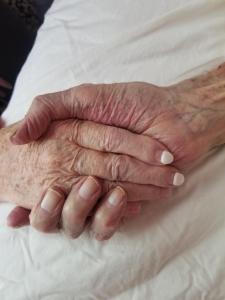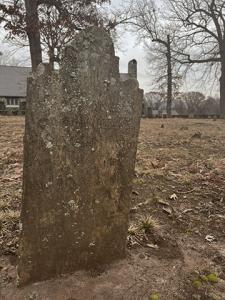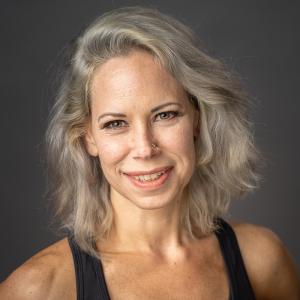As a Death Doula for a law firm, I have had the experience of attending many different deaths. Some deaths are attended by families, who stand at the bedside in stunned and awkward silence, waiting for the inevitable; while some families talk about trivial events, like politics, football, argue, or start discussing probate matters over the dying individual.

Some of our clients have come into my care after they have already become incapacitated. Because they have no family willing or able to serve as their healthcare agent, they find themselves alone and I have no way to converse with them about their final wishes.
In rare cases, I have been hired by thoughtful individuals who are aware of the need for a death advocate throughout the active dying process. A Death Doula is an advocate for the dying individual and the family to help facilitate and process what is occurring.
Most everyone has experienced a funeral, but not everyone has attended a death. Thus most experience comes by viewing the dying process from the living perspective. I want to share several aspects of death and dying that may not be expected.
- You may not know death is imminent. I recently had an unusual experience where my client was in full organ failure and was being kept alive by medical intervention. In reality, there was no way they could save his body but he was mentally 90% clear when he was able to be awake. I had worked for this veteran for the last five years as we had begun planning for his inevitable demise and continued support of his wife.
- The doctor may not explain, in direct, plain terms when death will happen. Granted, the doctor may explain the “likelihood” that death could occur, but one cannot 100% predict the outcome or the time frame in which these things occur. Many people don’t have the bandwidth at this emotional time to read between the lines to figure out what is being said. If you are lucky you may have a Death Doula or family member who is willing to spell out the actual possible outcomes. In one case, I had to inform my client he was dying even though he wasn’t aware of the severity of the situation and didn’t want to die. I needed my client to verify that his wishes, which we had spent years discussing, were still to be enacted.
- As you pass you might not have the ability to communicate clearly. While your brain may be clear your body may not be able to communicate effectively. Or, it may be that you speak and move effectively but your brain is being affected to such a degree that its information is not reality. In both cases estate planning documents and an agent capable of carrying out your wishes can be extremely valuable.
- A dying person wants to be gently touched. While this may not be true in every case, in my experiences with the elderly or people passing with chronic illnesses, it is true. Skin-to-skin interaction is psychologically, emotionally, and physically supportive in all ages. If you are not the hugging type there are many things you can do that can provide comfort and support. Consider that the dying is possibly unable to communicate what is uncomfortable for them but also may be physically sensitive. I suggest gently washing their feet, arms, and hands, lightly applying lotion, brushing their hair, light massage through the sheet, holding their hand or gently massaging their head/shoulders. Lightly rubbing the back, anything you do should be for short periods. I deeply recommend touch interaction. There is nothing more intimate than the emotional transference between the dying and the doula as being able to provide some support and deep acceptance of being touchable (and therefore loveable) even at death.

No matter how much we prepare or plan, a natural death is likely a messy, spontaneous experience with unexpected situations and unalterable results. Nature is like that. Everything in this world dies in its way. Not only do plants, animals, and people come to an end but so do stories, relationships, seasons, actions, ideas, beliefs, dreams, illness, pain, growth, even weather, and environments.
Birth and death are the bookends of life. You had no control over your birth experience and yet, while we can prepare ourselves and our families and friends for death on financial, spiritual, and emotional levels, most are not interested in developing that practice. Conversations and exploration into your death culture and burial options help bring the foggy unknown into clear hopes and wishes that you and your family/community can enact.













